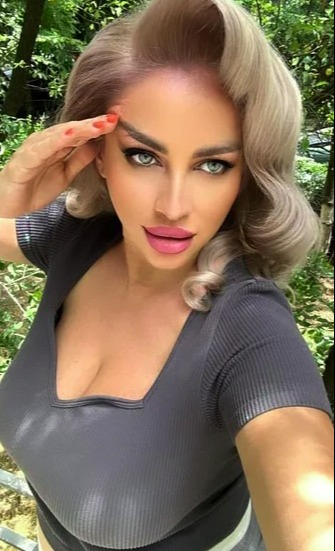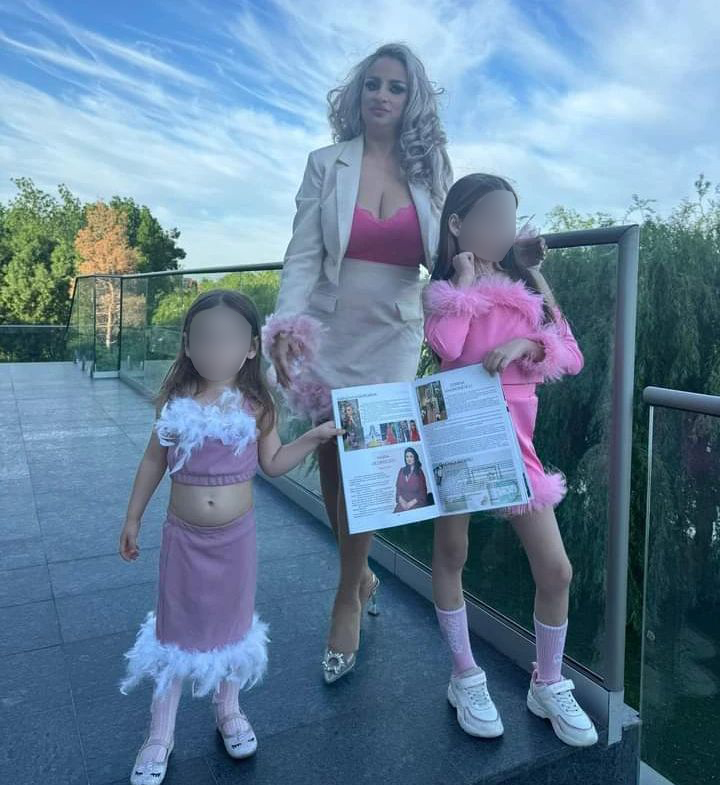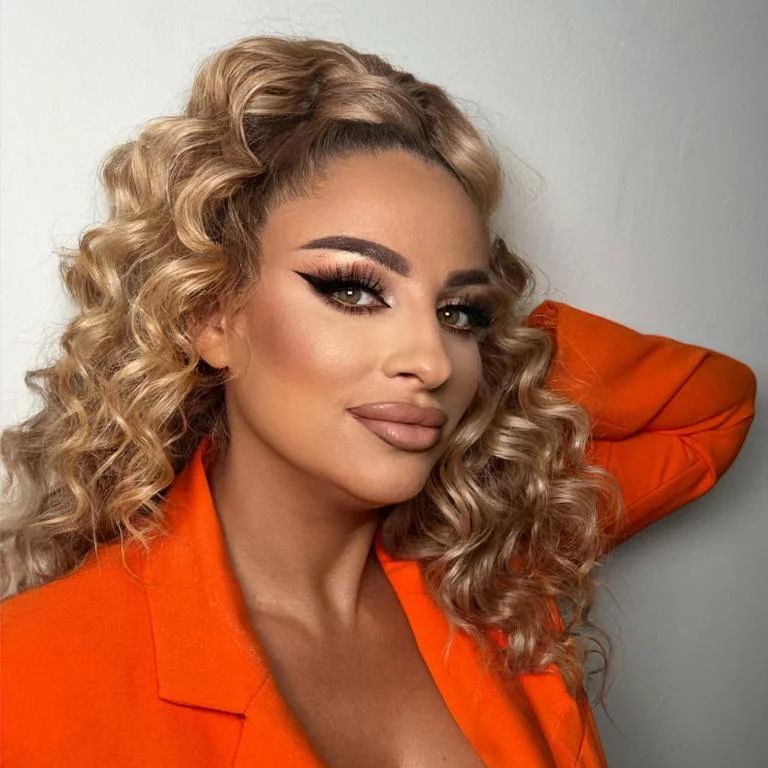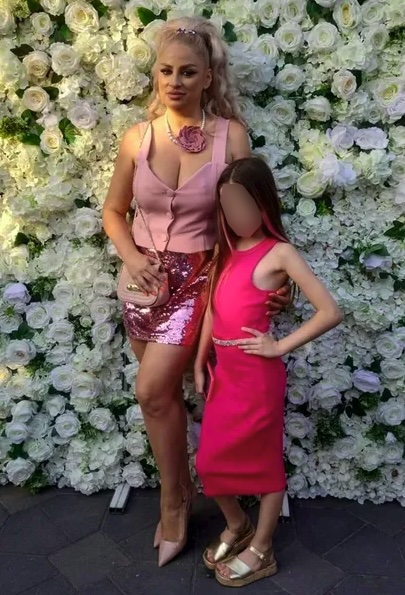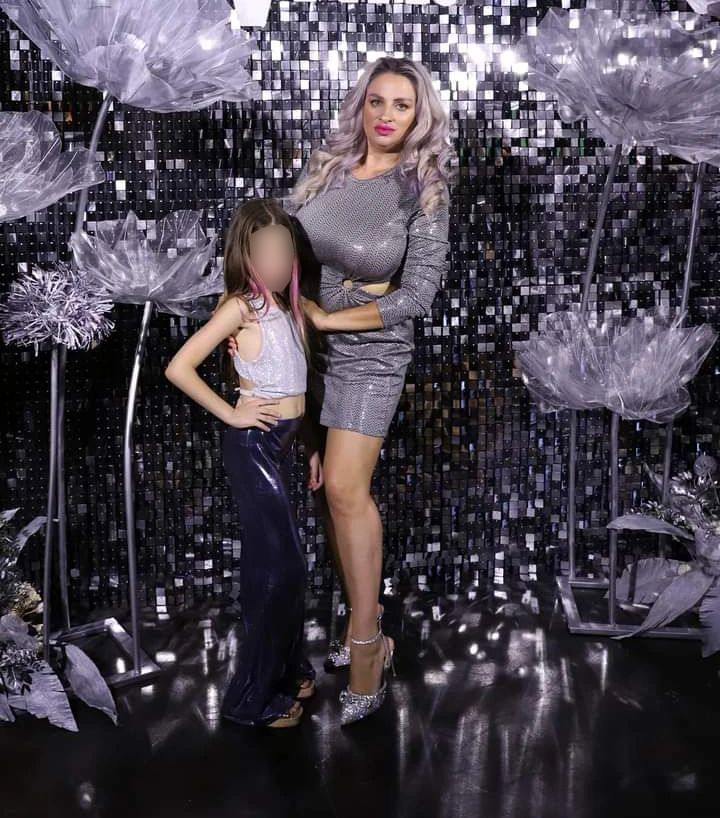A MUM-OF-TWO who breastfed her eldest child until she was six has hit back at trolls.
Sanziana Buriana, 40, said she can’t understand the criticism, adding that the practice is completely normal to her.
The social media influencer, from Romania, said she still breastfeeds her youngest Antonia, who is three, and has only just stopped breastfeeding six-year-old Izabela.
“I don’t stop, I give them until they want to stop,” the former TV assistant said.
“There is nothing to cause harm to them, they are both fine.”
Breastfeeding your child can have long term health benefits lasting into adulthood, the NHS says.
Read more real life stories
These include reducing the risk of obesity, cardiovascular disease and infections.
The longer that you breastfeed, the longer the protection lasts, and the greater the benefits.
Sanziana said that she has chosen to continue breastfeeding her children longer than some mothers so that they have healthy immune systems.
“They will be strong and healthy”, she said.
She continued: “It is quite a long time to feed, especially since my second girl arrived and I continued to do so without stopping.
“There was no break, so when you add up the years it seems like a lot.
“But they are happy, have good immunity, and don’t catch colds. I think it helps them.”
Sanziana revealed that she breastfed Izabela right up until she started school.
She added that her children see breastfeeding as a form of comfort.
The mum explained: “With the boob, if they have a problem or are in pain, they immediately calm down.
“I think it is like a bandage for them, a relief.
“And I couldn’t imagine what it would’ve been like if I hadn’t breastfed them.
“It would have been even harder to put them to sleep!”
Sanziana added that she still believes her breasts are in great shape after years of breastfeeding.
Fabulous will pay for your exclusive stories. Just email: fabulousdigital@the-sun.co.uk and pop EXCLUSIVE in the subject line.
What are the recommendations around breastfeeding?
The NHS recommends breastfeeding your baby exclusively (feeding them breast milk only) for the first six months, but it’s completely up to you to decide when you want to bring it to an end – and there’s really no right or wrong way to do it.
The NHS says weaning often happens gradually as your baby begins to eat more solid foods.
They note that solid food shouldn’t replace breast milk, as there is evidence to suggest breast milk helps a baby’s digestive system when processing solid food for the first time.
“Once they are eating solids, your baby will still need to have breast milk or formula as their main drink up to at least their first birthday,” recommends the NHS.
“Cows’ milk isn’t suitable as a main drink for babies under one, although it can be added to foods, such as mashed potatoes.”
You can also combine breastfeeding with formula, too and the NHS says “phasing out” of breastfeeding is often the easiest way.
For example, dropping one feed in the day or at night time.
After around a week, you can begin to think about dropping another.
“If your baby is younger than one year, you’ll need to replace the dropped breastfeed with a formula feed from a bottle or (if they are over six months) a cup or beaker, instead,” they say.
You can breastfeed for as long as you want, and while the NHS recommends breastfeeding your baby exclusively for the first six months, you shouldn’t feel like you cannot continue for longer.
The World Health Organization says: “Exclusive breastfeeding is recommended up to 6 months of age, with continued breastfeeding along with appropriate complementary foods up to two years of age or beyond.”

